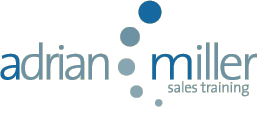Tax Tips If You're Starting a Business
Most of you know that there is no way in hell that I could ever write this post myself:) Tax is not my area of expertise but it is something that Howard Lipset of Progressive Management Inc. knows very very well.
I get lots of queries from folks about the sales and marketing aspects of their new start-up but I thought that I would add some breadth to this blog and include another key area of concern for any new business.
I’m reposting this from Howard’s excellent blog:
Seldom would I think of quoting the IRS but these tips for start-ups highlight what needs to be done. Unfortunately, there are decisions to be made and who would trust the IRS to help with those? I love to work with start-up businesses. It can be one of the most rewarding projects that I am involved with.
This is from an email I received from the IRS on July 3, 2013…
IRS Summertime Tax Tips – Tax Tips if You’re Starting a Business
If you plan to start a new business, or you’ve just opened your doors, it is important for you to know your federal tax responsibilities. Here are five basic tips from the IRS that can help you get started.
1. Type of Business. Early on, you will need to decide the type of business you are going to establish. The most common types are sole proprietorship, partnership, corporation, S corporation and Limited Liability Company. Each type reports its business activity on a different federal tax form.
2. Types of Taxes. The type of business you run usually determines the type of taxes you pay. The four general types of business taxes are income tax, self-employment tax, employment tax and excise tax.
3. Employer Identification Number. A business often needs to get a federal EIN for tax purposes. Check IRS.gov to find out whether you need this number. If you do, you can apply for an EIN online.
4. Recordkeeping. Keeping good records will help you when it’s time to file your business tax forms at the end of the year. They help track deductible expenses and support all the items you report on your tax return. Good records will also help you monitor your business’ progress and prepare your financial statements. You may choose any recordkeeping system that clearly shows your income and expenses.
5. Accounting Method. Each taxpayer must also use a consistent accounting method, which is a set of rules that determine when to report income and expenses. The most common are the cash method and accrual method. Under the cash method, you normally report income in the year you receive it and deduct expenses in the year you pay them. Under the accrual method, you generally report income in the year you earn it and deduct expenses in the year you incur them. This is true even if you receive the income or pay the expenses in a future year.
